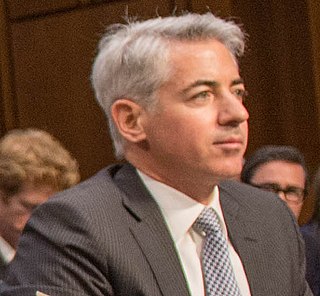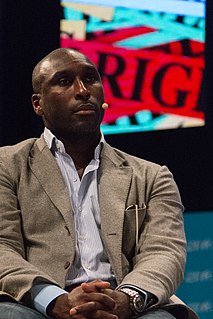A Quote by Bill Ackman
As a result of overdiversification, their (active managers) returns get watered down. Diversification covers up ignorance. Active managers haven't done enough research into any of their companies. If managers have 200 positions, do you think they know what's going on at any one of those companies at this moment?
Related Quotes
Self-dealing, essentially, occurs when managers run companies to line their own pockets instead of those of the companies' owners. It's been a perennial problem in American capitalism and became a real dilemma when America moved toward a model in which corporations would be run by professional managers who had only small ownership stakes.
Index funds have regularly produced rates of return exceeding those of active managers by close to 2 percentage points. Active management as a whole cannot achieve gross returns exceeding the market as a while and therefore they must, on average, underperform the indexes by the amount of these expense and transaction costs disadvantages.
I think there are probably too many hedge fund managers in the world, as well as active fund managers. The hedge fund industry is very efficient. We see a lot of hedge funds open and a lot close. It's very binary. You either succeed or fail in the hedge fund world. If you succeed, the amount the managers make it beyond most people's wildest dreams of wealth.
Many financial and industrial companies have been bailed out with the public's money, but very few of those who had run those companies have been punished for their failures. Yes, the top managers of those companies have lost their jobs - but with a fat pension and mostly with a handsome severance payment.
People would be a lot more skeptical if they understood that there is an incredible amount of chance in the results that you observe for active managers. So the distribution of outcomes is enormously wide - but that's exactly what you'd expect by chance with lots of active managers who hold imperfectly diversified portfolios. The really good portfolios contain a lot of really lucky picks, and the really bad portfolios contain a lot of really unlucky picks as well as some really bad ones.
Investors, of course, can, by their own behavior make stock ownership highly risky. And many do. Active trading, attempts to "time" market movements, inadequate diversification, the payment of high and unnecessary fees to managers and advisors, and the use of borrowed money can destroy the decent returns that a life-long owner of equities would otherwise enjoy. Indeed, borrowed money has no place in the investor's tool kit.
































